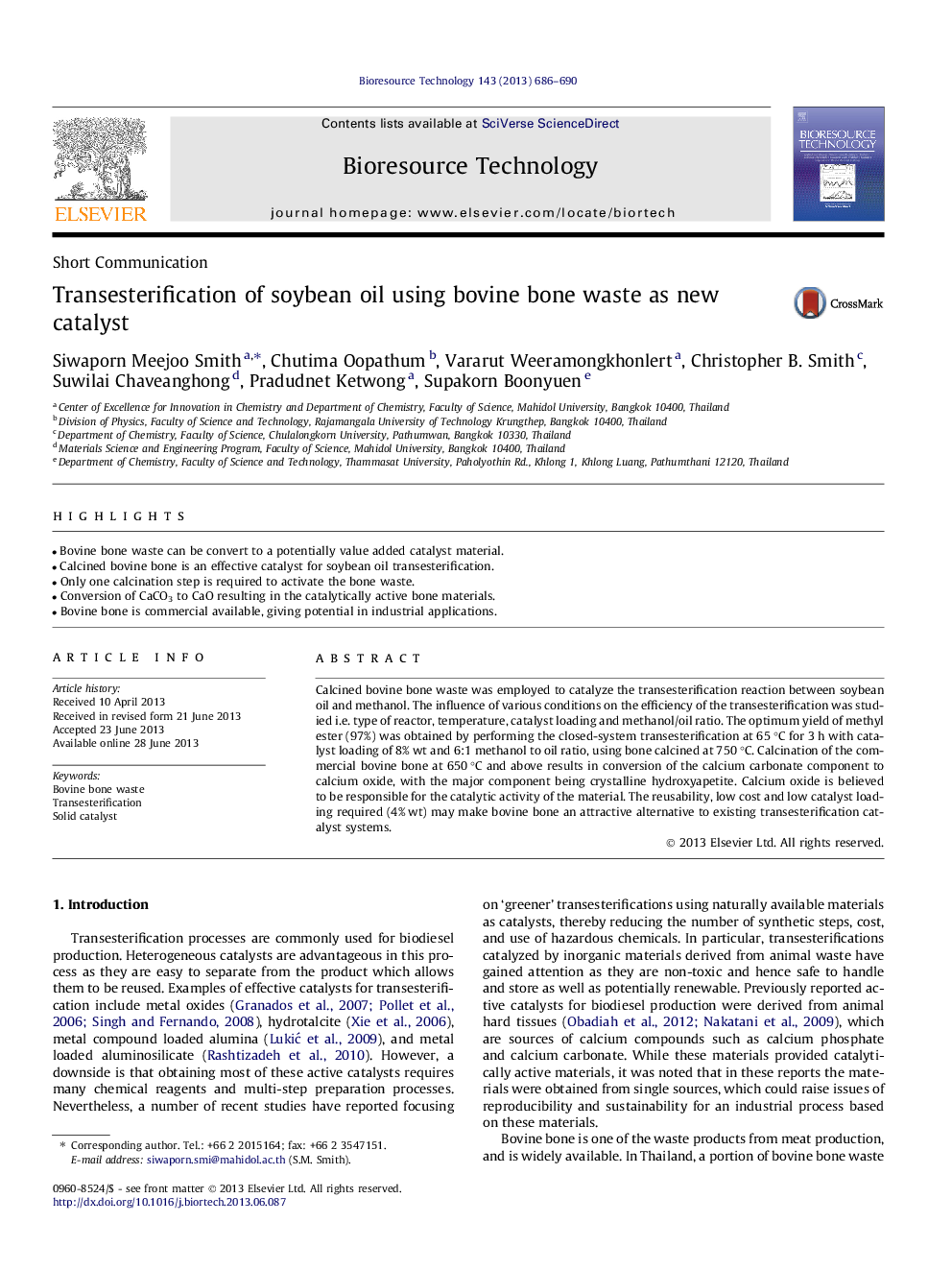| Article ID | Journal | Published Year | Pages | File Type |
|---|---|---|---|---|
| 7081944 | Bioresource Technology | 2013 | 5 Pages |
Abstract
Calcined bovine bone waste was employed to catalyze the transesterification reaction between soybean oil and methanol. The influence of various conditions on the efficiency of the transesterification was studied i.e. type of reactor, temperature, catalyst loading and methanol/oil ratio. The optimum yield of methyl ester (97%) was obtained by performing the closed-system transesterification at 65 °C for 3 h with catalyst loading of 8% wt and 6:1 methanol to oil ratio, using bone calcined at 750 °C. Calcination of the commercial bovine bone at 650 °C and above results in conversion of the calcium carbonate component to calcium oxide, with the major component being crystalline hydroxyapetite. Calcium oxide is believed to be responsible for the catalytic activity of the material. The reusability, low cost and low catalyst loading required (4% wt) may make bovine bone an attractive alternative to existing transesterification catalyst systems.
Keywords
Related Topics
Physical Sciences and Engineering
Chemical Engineering
Process Chemistry and Technology
Authors
Siwaporn Meejoo Smith, Chutima Oopathum, Vararut Weeramongkhonlert, Christopher B. Smith, Suwilai Chaveanghong, Pradudnet Ketwong, Supakorn Boonyuen,
